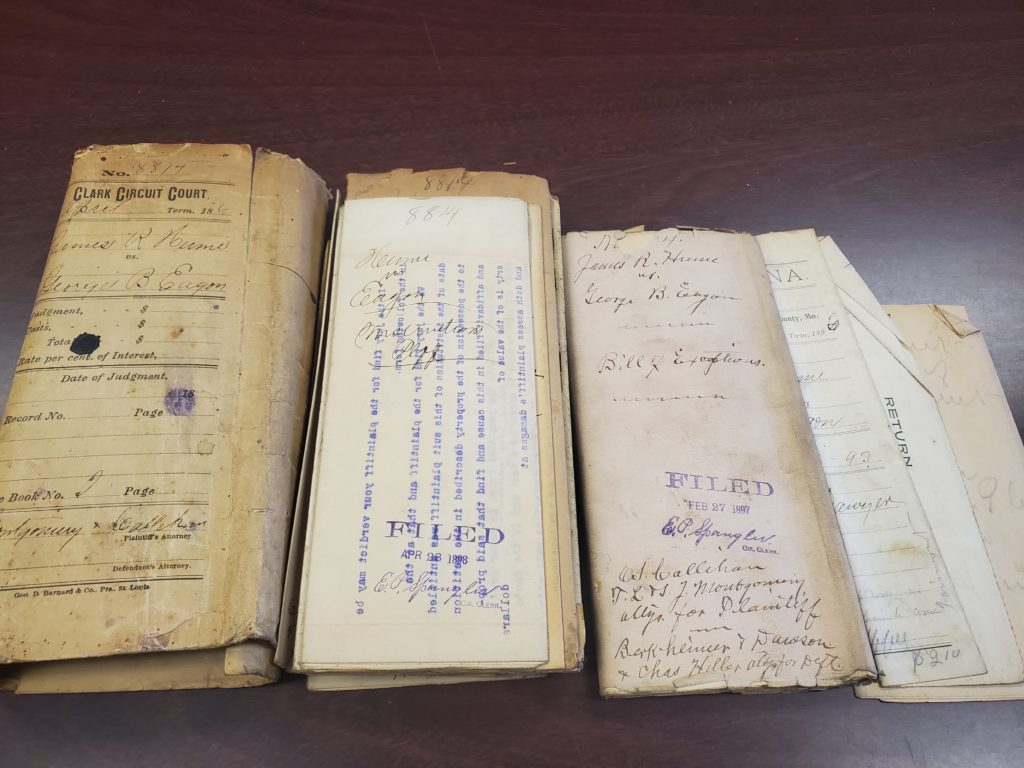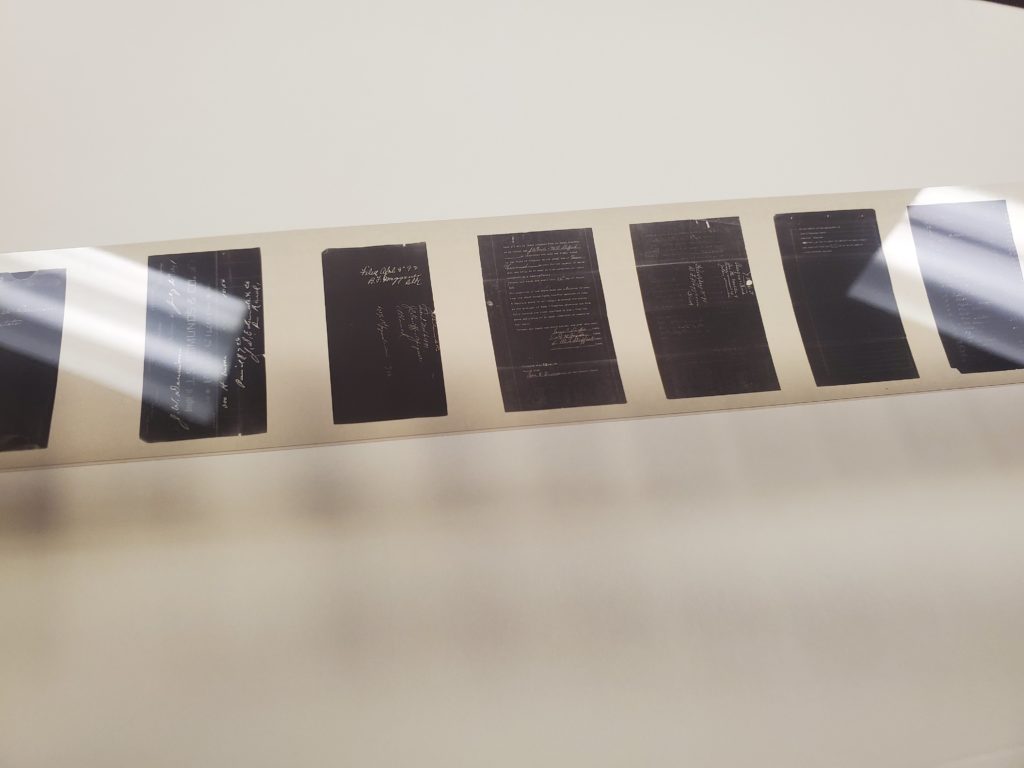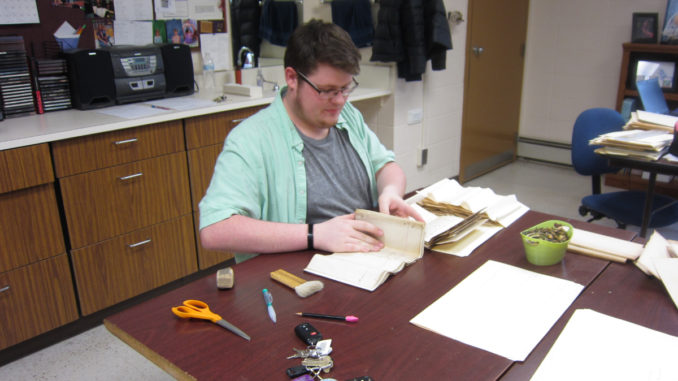
The Museum and Archives Internships program provides hands-on experience to students by giving them a wide variety of internship opportunities, both at Truman State University and across the state of Missouri.
Even as the Museum and Archives Internships focus on historical artifacts and preservation, the program itself is for more than just history majors. The program can lend valuable experience to a variety of Truman students.
“Naturally, the internships are most applicable for students considering careers in fields like academia, museums and archives, but the experience and skills are transferable to other career paths,” Jason McDonald, coordinator for the history department’s internships, said.
Students who have participated in the program were able to see firsthand how working in museums and archives is more interdisciplinary than it seems. Levi Cullifer, a senior who worked at the St. Joseph museums in the summer of 2019, described the multiple skills he learned during his internship, including communication, management, policies and regulations, as well as experience in some of the computer software used by museums.
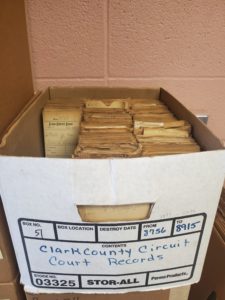
A prime example of the interdisciplinary value of the program comes from the Judicial Archives internship conducted on campus. Here, a variety of majors work together in a statewide project to clean and organize court documents from the past century, with the current project for Truman’s branch being Clark County circuit court documents from the 19th century. The program, also held at Missouri Western State University, Missouri State University and the University of Central Missouri, has hosted not only history majors but also justice systems majors, pre-law students and communication majors.
“It was very interesting to see the different dynamics of how they looked at the documents,” Cullifer said. “I looked at it from a historical standpoint, another looked at it from the legal standpoint and the difference in legal standards, and the communication major looked at how the documents were written.”
Off-campus, the Museum and Archives Internships allow students to travel to one of eight different museums in Missouri, or if they have a previous connection with an institution, they can participate there for college credit. Senior history major Lauren Reed worked at the Missouri Historical Society for the summer of 2019, working firsthand with their archives and fulfilling a childhood dream.
“I live in St. Louis, so the Missouri History Museum was one that I would always go to when I was little,” Reed said. “It was a really exciting experience for me when I was younger and getting the experience of being behind the scenes, especially in their archives, was really fun.”
Cullifer and Alexandra Miller, a senior history major who worked in the Harry S. Truman Museum during the summer of 2019, both shared the sentiment of museums as a longtime passion.
Miller was not only able to work with the museum’s $25 million renovation project, but also take part in its inventory, where all artifacts are documented for the federal system of museums every eight to 12 years. On top of working with artifacts, Miller was able to prepare for her future through connections with the museum.
“You’re able to make connections within the Museum world,” Miller said. “At the Truman library, I met a ton of people, including donors, the curator, the director, pretty much everyone who worked at the museum. I was able to make connections with all of them, and all would be able to write a letter of recommendation, or chat about the profession, or connect me with someone elsewhere.”
Cullifer and Miller both plan on going to graduate school to further their history studies, while Reed plans to work in museum development or archives, where experience in museum and archives work is vital.
The hands-on work done during the Museum and Archives Internships is not the same across all museums, however, as different students take on specific roles during their internships.
“For my other internship, I did a Show-Me program webinar to showcase museums and archives across the state during COVID. I also worked on a private exhibit and research project on a private photograph collection for the St. Joseph museums,” Cullifer said.
For Reed, the 20 hours per week program at the Missouri Historical Society had a mix of jobs, from digitizing an existing collection of journals from the 1800s to processing an incoming collection of documents regarding the 1990 St. Louis Earth Day Festival.
One constant experience for interns in the program at both museums and the judicial archives is learning the cleaning procedures, an essential part of historic preservation. The cleaning would range from superficial wiping down of documents, to removing old fastenings and the use of compounds like methylcellulose to remove old glue.
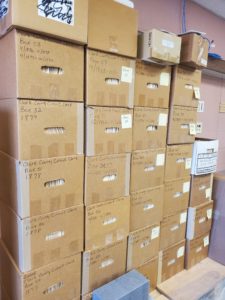
Despite the interdisciplinary value the Museum and Archives Internships has, there is a sense that other disciplines do not take full advantage of the opportunity.
“I feel like more departments could recognize that there are opportunities and email them out to students, because, at least for me, getting a department email is a lot more noteworthy than an email for the entire University,” Miller said. “I also think that if professors had students in mind that would be interested in, say, working in a museum, or a PR internship, then they could send emails to ask, but I don’t know how students would respond to that.”
Being able to put an interdisciplinary spin on the program was another suggestion regarding expanding the program’s outreach. By showcasing different aspects of history, Cullifer said he believes that other departments would respond well to the internship and generate more excitement for non-history majors.
While McDonald and the history department use multiple means to spread word of the program, including posts in “Truman Today,” postings of announcements both physically and digitally, and hosting meetings throughout the year, personal experience and connection are key parts of the program’s success.
“Word of mouth also plays an important role, with many students first hearing about internships from fellow students who have had rewarding experiences on the program,” McDonald said.
A shared experience from participants in the program was not being afraid to experience the program. For interns like Cullifer, the judicial archives being on campus can be a help to test the waters before working at a museum over the summer and learning new skills in the field.
“The experience I’ve gotten out of is working in a profession that I’m interested in and the connections are really valuable to me. I would say don’t be intimated, it’s definitely worth it and rewarding,” Reed said.

